The secret comic book origin of Brad Meltzer
Brad Meltzer shares his roots in comic books - and his thoughts on if comic books need to be legitimized

Brad Meltzer is an uber-successful prose novelist, a non-fiction author, and even a TV show host - but he's also a comics writer. And more importantly to him, he's a comics fan.
An unabashed comics fan.
"I'm from the philosophy of: if you read comics, say it loud and say it proud," Meltzer says.
Meltzer made his comic book writing debut in 2002, taking over Green Arrow right after the chart-topping run by writer Kevin Smith. At the time it was big shoes to fill, especially for a prose author whom most comic fans couldn't even pick out of a line-up. But with Green Arrow, then Identity Crisis, then Justice League of America, he became one of the most successful comic writers of the 21st century.
Back on the eve of Meltzer's comic book writing debut in May 2002, Newsarama spoke with Meltzer to find out his comic book roots - and we're re-presenting that interview now, as he's grown from 'the new guy' in superhero comic books to being one of its most popular authors.
Newsarama: Brad, let's start back a while - take us back to your beginning in comics – when did you get into comics?
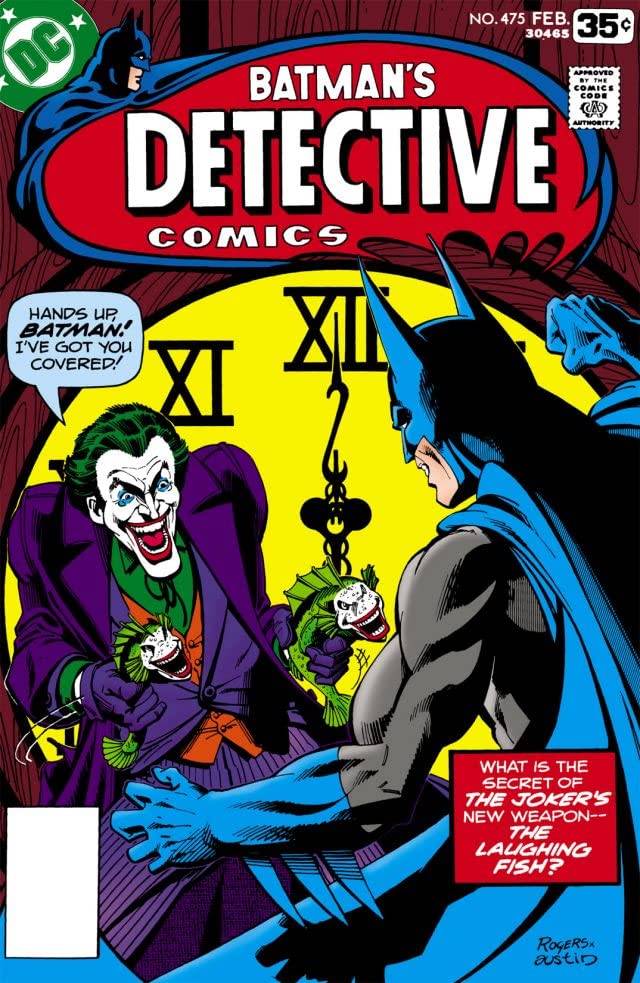
Brad Meltzer: If you ask me about the first book I read, I immediately think of a comic book.
Comic deals, prizes and latest news
Get the best comic news, insights, opinions, analysis and more!
My first comic that I remember getting that my Dad brought home was 'The Laughing Fish; – the Joker story in Detective by Steve Englehart and Marshal Rogers.
Nrama: Detective Comics #475.
Meltzer: My Dad used to work at a place where there was an old bookstore, back before there were official 'comic book stores' and he used to grab a handful of beat-up comics that the store had for ten cents or a quarter apiece. I remember he brought me that, and sometime later, he brought me Justice League of America #150, which was a story that involved the Key, and I remember just losing my mind over it. There was one splash page that had all the JLA members stuck in these Key 'prisons.' All of the members were stacked up one on top of another. I remember looking at that page and thinking, 'Oh my gosh – who should act first?' And the addiction was born.
I think that's how comic addictions are always born – just like drugs, the first couple are free, and then you know who to call or where to go if you want more.
Nrama: So you were a superhero kid, growing up?
Meltzer: I was definitely the superhero kid, and back then, I was all about team books. I remember the first comic I really spent my money on – I got a $5.00 allowance, and all comics were priced either $.25 or $.50. I went to a book store/comic book store in Brooklyn, and would just divide my $5 by the cover prices, and my entire allowance went to that. I started buying every team book I could find, from Secret Society of Super-Villains to Justice League, to anything else I could find that had a group in it. To me, Green Lantern/Green Arrow was a group – Black Canary was there, and Speedy was there, so I'd grab those.
The other thing I was after was the old Adventure digest reprints they used to publish. Those and The Year's Best Stories digests they'd publish – those were just the best ways to read all the old stuff.
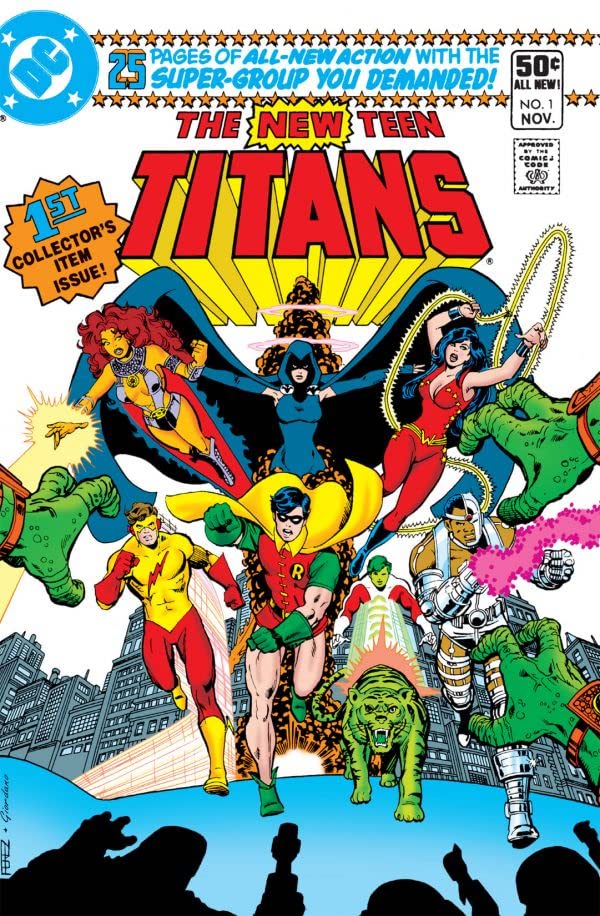
But going back, I remember shortly after New Teen Titans came out, #1 was selling for $15, and DC Comics Presents #26, which had the first appearance of the Titans in it in an insert was also $15. I remember thinking that no one could afford $15. I saved for both of those issues because I got on to New Teen Titans late, and at that point, $15 could have been $100,000 to me. Even though I was completely into comics by that point, and had my own pull box at the store, those were the first comics I remember really spending money on.
Nrama: Given that you were heavily into comics as a kid, how would you say that has influenced both the stories you now write as well as the way you write them?
Meltzer: In terms of writing novels, there is no question that when I write a chapter in a novel, it is based on years of reading 22-page stories.
When Green Arrow was announced, there was a reporter for the local city paper here in D.C., and it was the first time a comic fan had ever read my work and reviewed it. He went through it and said it was so blatantly obvious to him that I read comics just by my pacing. I haven't hid that for years – it's just that no one who's read comics has ever put that together with my books.
But he was absolutely right – how do you get a cliffhanger every couple of pages? Every month I got a cliffhanger. How do I know to write short beats? That's what I read – short beats in monthly installments. When you do that over fifteen years of your life, eventually that pace is going to have an effect on what you do. It teaches you to get in and get out. Make the scene, and have a point. Make the scene, and have a result, make the cliffhanger and go. I don't think it's a coincidence that pacing follows the comic book format.
It's not something I consciously think about – I don't sit down and try to figure out how I can make a chapter read like a 22-page comic, but it's just built into you. It's like the Karate Kid – eventually you wax on, wax off enough that you know how to block Miyagi's punch without thinking.
Nrama: As you got older, did your views of what comic books were expand beyond superheroes?
Meltzer: Sure, and I remember the comics that did it.
When I moved to Florida, I couldn't drive to the comic store, so I had convinced the comic book guy to deliver the comic books to my house. He used to leave them on the doormat. He would call me with the total, I'd leave him the money, he'd leave the change under the doormat, and the comics at the door.
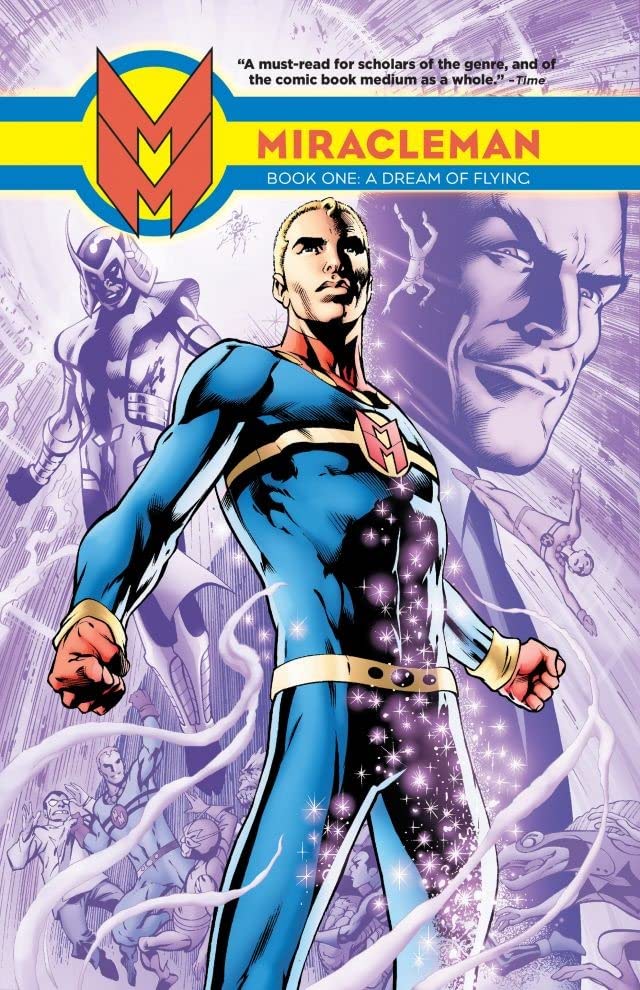
One week, he put Miracleman on the doormat. I remember losing my mind when I read it. It was around that time when Dark Knight Returns and Watchmen hit as well, and I remember reading those that they were different. Even the old Titans stuff that I loved – Terra and 'The Judas Contract' run, and the stories that led up to 'The Judas Contract' – all the Marv Wolfman/George Perez stuff, all the old Paul Levitz Legion stuff, anything JLA - all of those were different from what I was reading in Miracleman and Dark Knight.
Again, it was the old pusher analogy – the comic book guy had thrown in Miracleman for free, and I wanted more. From there, I started finding more Eclipse, and other small publishers that were not putting out traditional superheroes, even if they wore the costume.
In comics today, there are what I call the 'boy' fan – who's your typical teenage boy, and more power to them – they still like the battle and the fight of the month; and then there are those of us who grew up on that, and now want something different. It's great when they overlap in something like Ultimate Spider-Man, but it's great also when you can go off and read something like Dork! or whatever else is out there for when you don't want to read about superheroes anymore.
Nrama: Your literary career has been very successful – you're probably the only writer in comics whose novels have their one standees in supermarkets. When you accepted the gig to write Green Arrow, did anyone at all, from your agents to publishers or other authors pull you aside with the 'What do you think you're doing?'
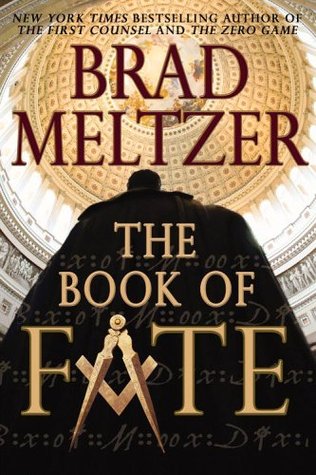
Meltzer: No – the funny thing is how many people came out of the woodwork who are comic fans.
Being a comic fan today and being an adult is somehow like being part of a secret society. A few months ago, someone had given me a Green Lantern prop battery, and I was carrying it out a hotel, and I can't tell you how many people kind of whispered, 'Hey – you read comics?' The guy behind the desk stopped me, then the guy in the cab stopped me, and then it was the guy in the elevator.
The funniest thing was when the Green Arrow news was announced, I was on a panel with Walter Mosley – one of the preeminent mystery writers in the country - he wrote Devil in a Blue Dress which became a movie, and the whole Easy Rawlins character. He's arguably the premier African-American mystery writer in the whole country, and I mentioned something about comics, and he looked at me. I thought he was going to tear me a new one for mentioning comics, but he looked at me and said, 'Do they still have Speedy in there?' I didn't realize he's a complete Jack Kirby nut and has been collecting Kirby art and comics.
It's the ultimate secret – no one wants to say anything, no one wants to tell anyone, but I can guarantee you, they're all just sitting out there waiting for their moment, and waiting for the phone to ring. Walter was thrilled that I was writing Green Arrow, and that just made my month.
Nrama: What about fans of your novels?
Meltzer: There are some people, and I'll see them at a book signing now or then that ask what I'm working on next. I tell them Green Arrow, and they look at me, and say, 'Huh.' Then comes the polite nod, and I know they don't approve, but you know what? I don't really care about that person - they're not who I've ever written for. I've never written for anybody else but myself, and I write what I like to read, and what I want to read.
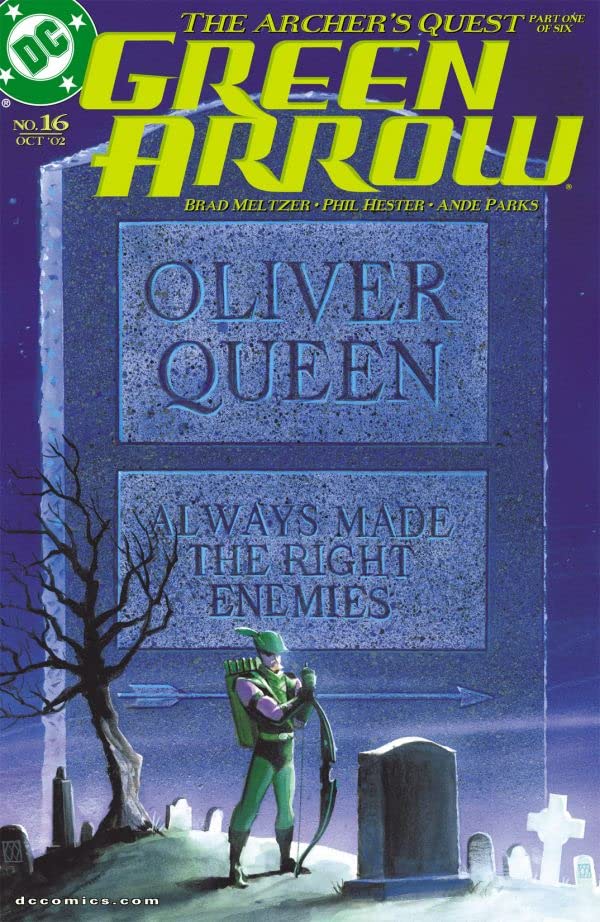
To me, it's never been about what's going to further your career – if I wanted to further my career, this is the dumbest move I can make. It pays me far less, it arguably takes me away from the literary scene, it keeps me from doing other projects which could further my career, and it puts off the next novel, which is the center point of what I'm paid to do in the first place.
But you know what? In a way, I've been waiting my whole life for this job. Everything up until now has been training. People ask me what novels I like to read – I don't read novels, I read comics. That's my reading, that's what I like, and that's always how it's been. Walter Mosley said the same thing – everyone likes to get up there and say that they read Homer and the classics, and that's fine - To Kill a Mockingbird is still the greatest book ever written, but I'll still take a comic.
Nrama: Do you think that your fame as a novelist will help add legitimacy to comics in the eyes of outsiders to the industry, and help it reach out to new readers?
Meltzer: Hopefully, the industry is always reaching out. The problem is that sometimes the best fun from reading a comic comes from the nostalgia from the fact that you've been reading it for ten years. For instance, I can give anyone JSA - it's a great book and very enjoyable, but they're never going to get the enjoyment until they read the 50 years of back history and know all the players involved. It's just impossible.
I gave my wife Dark Knight, and she loved it, but when Frank Miller wrote, "And Hal left for the stars," she didn't know who Hal was. The line was lost on her. It doesn't take anything away from the book, but on some level, that's going to be the limit of her enjoyment.

That said though, I think legitimacy is a game that's silly to play. There is no legitimacy that's needed – comics have legitimacy. We don't have to pander to anyone for recognition. It's kind of like popular fiction pandering to the literary fiction people of the world because they feel that they need legitimacy.
It's like popular fiction writers feeling like they have to be writing for the New Yorker before they can be 'real' people. I always feel when I see authors do that, why pander? It's only those people who think it's a hierarchy that goes up and down. In reality, it's a line that moves side to side and is a function of taste. It's the literary marketplace that wants to put it in a pyramid with the ultimate literary novel at the top and then somewhere at the bottom, just below the daily cartoons, are comic books.
That's silly to me – we get that because we act like that and because we hide behind comics. Produce good work, and you'll get the legitimacy. You get a Neil Gaiman, an Alan Moore, Warren Ellis, or Brian Bendis banging out fantastic books that 13-, 30-, and 60-year-olds are all reading and enjoying, and you get legitimacy. It's there.
I think that on some levels, people who read comics at some point in their life had self-esteem issues to deal with. That will be forever built into our characters, and make us feel like we have to fight back in some way. It's probably why we like the good versus evil thing of superheroes – we've always felt it in our brain, whether it's reality or not.
Not to psychoanalyze every comic fan, I think on some level, we get that lack of legitimacy, because we own it as our own experience. But I'm from the philosophy of: if you read comics, say it loud and say it proud. If you want to hide it, and make sure you read it in a brown bag, and never read it in public, and when your friends ask what you're reading, you always call it graphic novels instead of comic books, you're always going to have those issues, period.
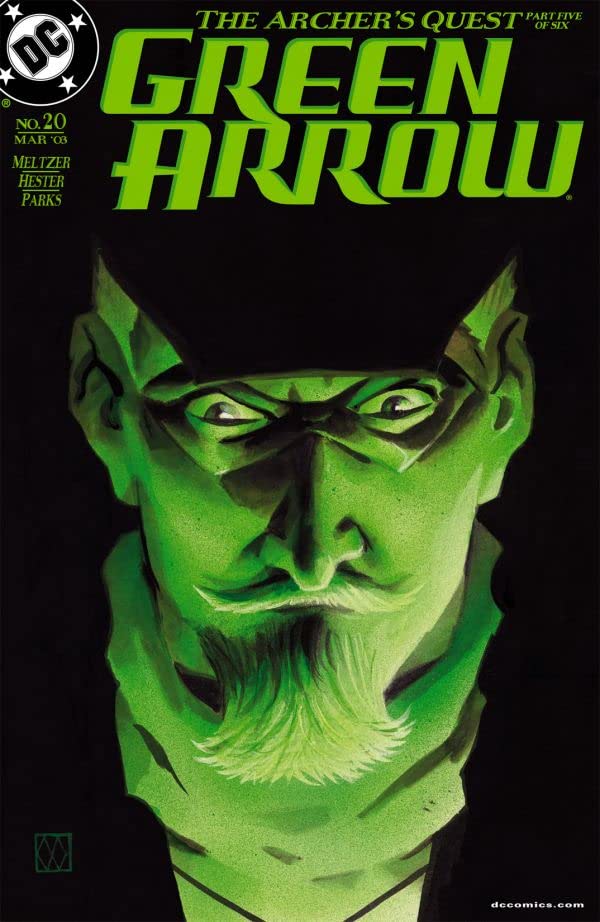
Nrama: All of the above said, how are you applying your beliefs and philosophy about comics to your upcoming Green Arrow story?
Meltzer: What I said to [then DC editor] Bob Schreck was that I didn't want to come in and do villain of the week. I want to come in and do something that is a true story arc, and Oliver Queen will be a different person by the end of it. It will have a true starting point, and a true ending point, and it will be one continuous story. I told him that if I didn't have a great idea for it, we shouldn't do it together – we'll do another book sometime.
I didn't say yes to the offer until a couple of weeks after Schreck asked. I was on a live news show doing an interview, and I was backstage in the green room telling him the pitch, and they kept trying to get me to hurry up so I could get to the show, and I told them to wait – I had to finish telling Bob the pitch.
So those six issues are the story I have to tell that will hopefully knock Oliver Queen on his ass. In terms of a tease, Kevin Smith has spent the last year and a half bringing Oliver Queen back from the dead. Now I feel that it's the time to return him to his life. You can read into that all the crazy ways you want, but that's exactly what it's going to deal with. Right now, it's called 'The Archer's Quest.'
Matt Brady was the co-founder and managing editor of Newsarama until 2008. Since then, he’s moved back to science and teaches high school physics and chemistry. He’s also written a handful of comics, as well as The Science of Rick and Morty from Simon and Shuster. With his wife, Shari, he started thescienceof.org, which blends pop culture with science as a means to increase student engagement and the public’s interest in science.



